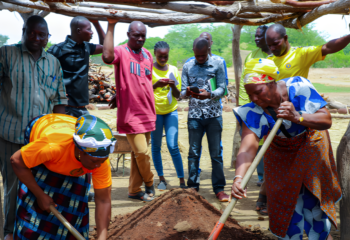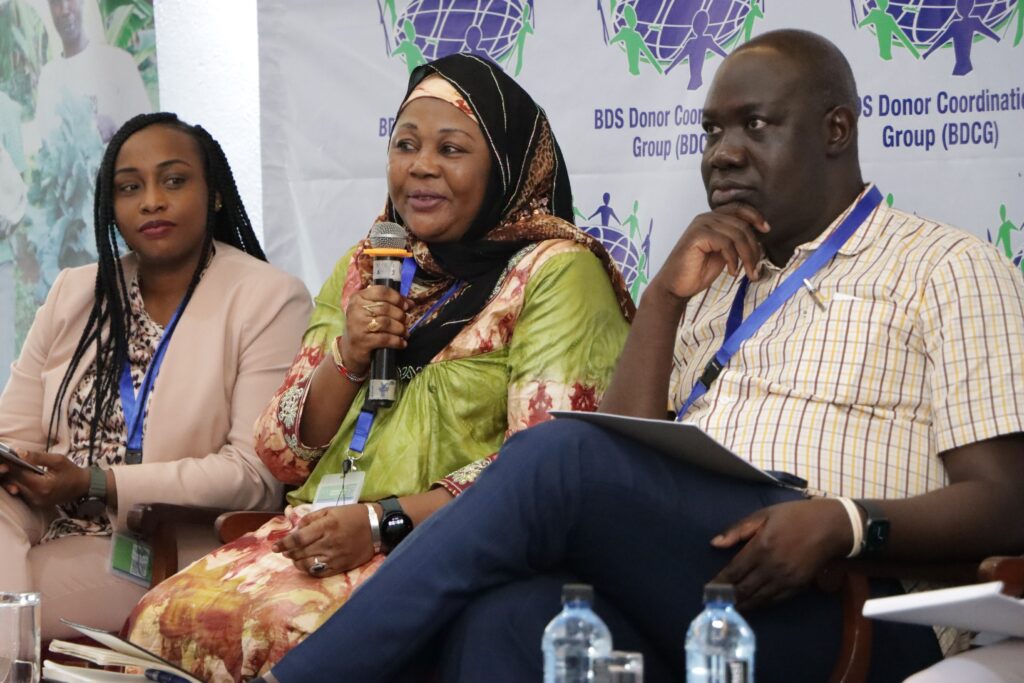
The 2024 Inclusive Market Systems Symposium, held on November 27-29 in Mombasa, Kenya, brought together thought leaders, policymakers, and practitioners under the theme “The Role of Market Systems Development in Building Resilient and Inclusive Economies.” Hosted by the Business Development Services Donor Coordination Group (BDCG) as part of its first year under a new strategy, the event provided a collaborative platform to explore innovative strategies for driving inclusive and sustainable economic growth across Africa’s market systems.
As a leading industry membership network, BDCG is dedicated to fostering resilient markets and inclusive economic development across the continent. With Micro Enterprises Support Programme Trust (MESPT) serving as its secretariat, the network champions knowledge-sharing, best practices, and policy advocacy to support vibrant, sustainable market systems.
The International Fertilizer Development Center (IFDC) played a significant role in the discussions during the symposium, sharing transformative insights and showcasing its expertise in agricultural innovation.
Josline Nyaga, an agronomist on the Potato Value Chain Capacity Building (PCB) project, spoke during the Climate Adaptation, Resilience, and Regenerative Agriculture session. She highlighted the severe disruptions caused by climate shifts on food systems, including declining productivity and soil degradation. Nyaga also emphasized the need for collaborative approaches: “Building resilient food systems requires united efforts to withstand climate shocks.” Her remarks underscored the importance of harmonizing stakeholder actions and adopting sustainable farming practices.
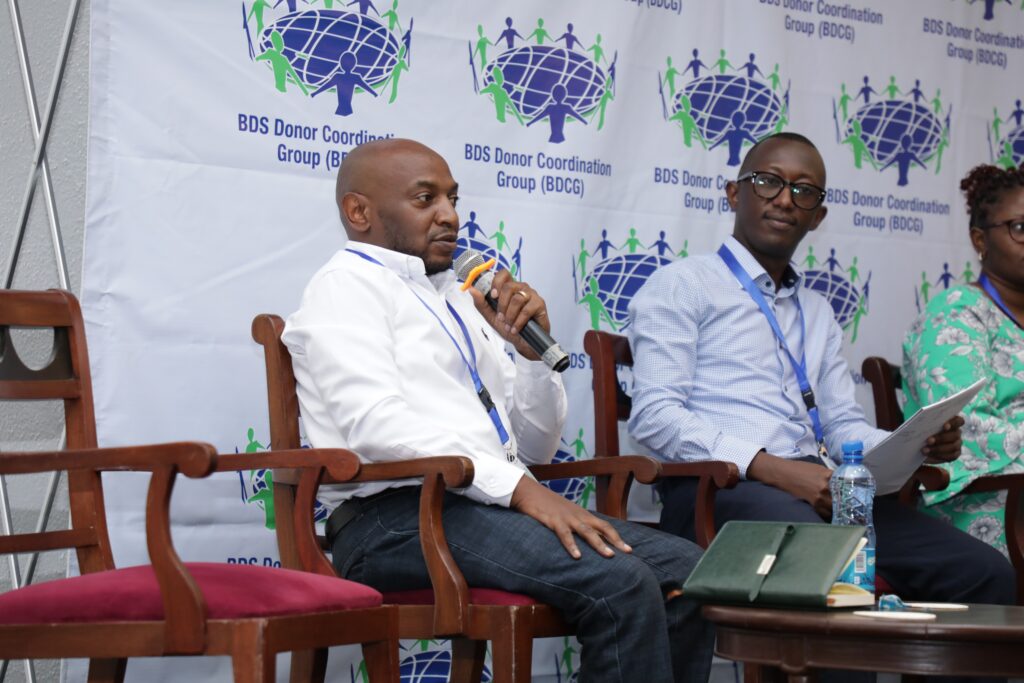
Additionally, Dr. Aichatou Maikoudi, Program Leader for the Integrated Seed Sector Development in the Sahel (ISSD/Sahel) program, presented strategies for improving seed quality and empowering cooperatives in the Sahel. She explained how the program addresses challenges such as political instability and limited market access by equipping cooperatives with technical support and business training. “By empowering women and youth in seed systems, we strengthen resilience and ensure sustainable agricultural growth,” she stated.
“Advanced technologies are important, but local, accessible innovations can create immediate impact.”
Ruth Saleh Ardzard, farmer and HortiNigeria Beneficiary
IFDC’s impact was further evident during the session entitled Inclusive Business Practices and Partnerships, during which Kenya Country Team Leader Patrick Boro shared insights from the Toward Sustainable Clusters in Agribusiness through Learning in Entrepreneurship (2SCALE) program, which supports inclusive agribusiness ecosystems across nine African countries, integrating marginalized groups, such as refugees and persons with disabilities, into value chains.
Since 2SCALE promotes financial inclusion and fosters equitable growth, Patrick emphasized the importance of shared ownership, risk-sharing, and collaboration in creating thriving ecosystems that benefit all stakeholders. “Village savings and loan associations are game changers for financial inclusion,” he explained, highlighting their critical role in providing opportunities for smallholder farmers and grassroots entrepreneurs.
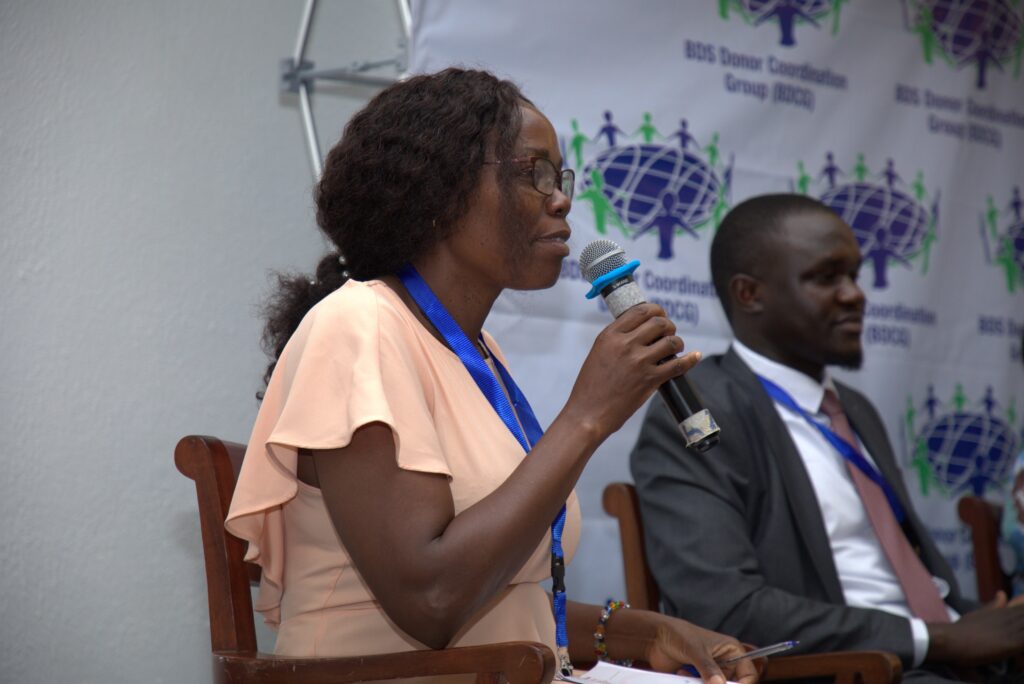
IFDC Kenya Country Director Bridget Okumu also moderated a discussion entitled Digital Transformation, exploring how technology is reshaping market systems. The session illuminated how digital tools empower farmers and traders to access markets and streamline operations, aligning with IFDC’s goal to integrate innovation into agricultural practices for greater efficiency and sustainability.
On the final day of the symposium during the plenary session, entitled Evidence Creation for Policy Influencing – Validation Research for Development, HortiNigeria Program Director Mohammed Salasi Idris shared the program’s transformative impact on Nigeria’s fertilizer distribution system.
He detailed the shift from paper to digital vouchers under the Growth Enhancement Support Program, which significantly improved transparency and efficiency. He then emphasized the program’s role in driving productivity and policy innovation.
“HortiNigeria has transitioned from traditional paper-based methods to a highly efficient digital system, registering millions of farmers and ensuring targeted subsidies.”
Mohammed Salasi Idris, Hortinigeria program director
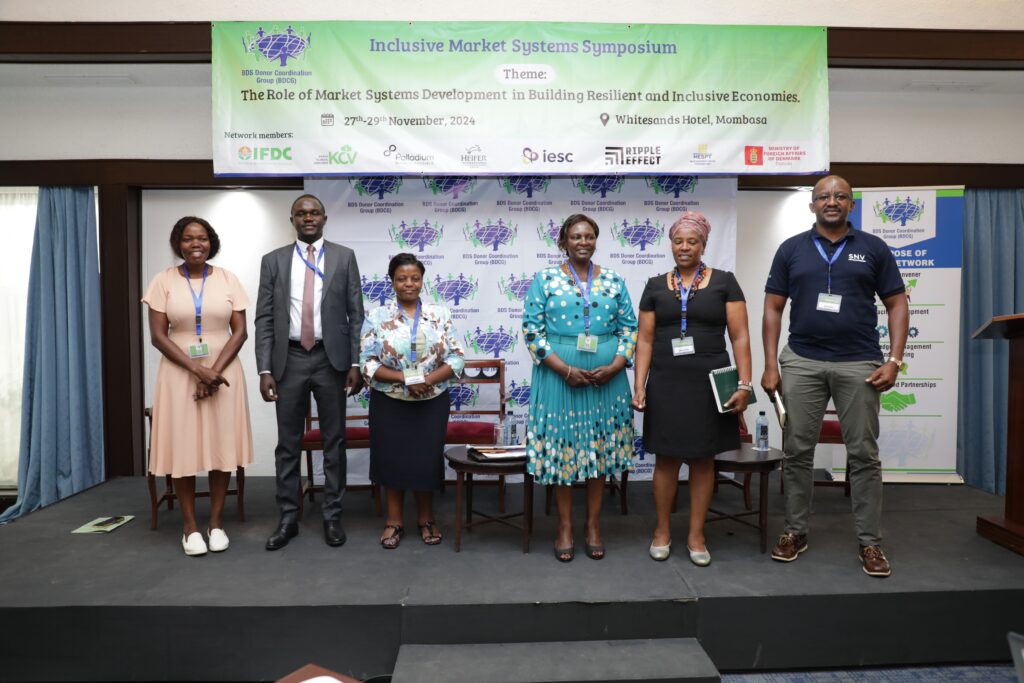
Ruth Saleh Ardzard, a farmer and beneficiary of HortiNigeria, shared her perspective on the importance of practical, eco-efficient solutions: “Advanced technologies are important, but local, accessible innovations can create immediate impact,” she observed, advocating for the use of natural resources such as worms to improve soil health.
The symposium was a milestone for BDCG, marking the launch of its new strategy to promote resilient and inclusive market systems. Through its active participation, IFDC demonstrated its leadership in driving impactful solutions and fostering collaboration.
IFDC’s contributions reinforced the importance of collective action and innovation in achieving sustainable growth. IFDC’s commitment to empowering farmers, strengthening value chains, and fostering inclusive markets stood out as a powerful example of how innovation and collaboration can create ongoing opportunities for all.

